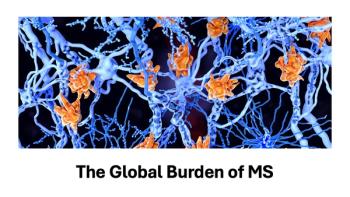
Common Gut Bacteria Linked to Autoimmune Diseases
Protein produced by common gut bacteria may trigger the onset of autoimmune diseases such as multiple sclerosis, rheumatoid arthritis, and ulcerative colitis.
Protein produced by common gut bacteria may trigger the onset of autoimmune diseases such as multiple sclerosis (MS), rheumatoid arthritis, and ulcerative colitis.
This revelation comes from the findings of a new study conducted by researchers at Queen’s University Belfast in Ireland that showed some patients with autoimmune disorders display higher-than-normal levels of a “mimic protein” produced by Bacteroides fragilis, a member of the human gut microbiome.
Study author Sheila Patrick, PhD, professor at Queen’s University, says this specific microbe in the gut pumps out protein molecules that mimic a human protein, causing the human defense system to turn on its own cells by mistake, contributing to autoimmune deregulation.
The
“When we carried out the first complete genome sequence of the reference type strain of the gut bacterium Bacteroides fragilis in the early 2000s, we were astonished to discover that it produces a homologue of mammalian ubiquitin,” Patrick says. “Ubiquitin is found in all eukaryotic cells but is not found in bacteria. B. fragilis is therefore unique amongst bacteria as it produces and exports a version of eukaryotic ubiquitin which is very close to mammalian ubiquitin and is predicted to be structurally similar.”
Back then, the researchers hypothesized that this level of molecular mimicry could cause the break-down of immune self-tolerance to ubiquitin and lead to the production of self-reactive antibodies to ubiquitin. The breakdown of self-tolerance, thought to be triggered by molecular mimicry, is a characteristic autoimmune disease.
For this new study, the researchers screened serum from patients and referred to an immunology diagnostic laboratory for testing for the presence of antibodies to either or both BfUbb and human ubiquitin and compared these with serum from healthy individuals.
Related:
The bacterium B. fragilis is a member of the normal human gut microbiota-practically everyone is colonized by it-although not everyone’s B. fragilis produces BfUbb.
Some people had antibodies that reacted with both the human and the B. fragilis version of ubiquitin. Therefore, the findings suggest that an initial reaction to the unique part of the B. fragilis version of ubiquitin can trigger the production of antibodies to the part of the molecule that is the same as the human version.
“We have found that some people have antibodies to the unique part of B. fragilis ubiquitin,” Patrick says. “This proves that B. fragilis ubiquitin can cross the human gut lining and generate an immune response. We found that people with autoimmune diseases, such as lupus and rheumatoid arthritis, are more likely than healthy volunteers to have antibodies to BfUbb.”
As autoimmune diseases are chronic diseases with considerable associated morbidity and mortality, in addition to long-term health-care costs these conditions present, Patrick notes the discovery of the B. fragilis mimicry of human ubiquitin is important.
“There is currently no precise understanding of exactly how these diseases come about, although it is well-recognized that an inappropriate autoimmune reaction is a central aspect of the disease,” she says. “Our project therefore has the potential to have significant impact on the health and wellbeing of a large number of individuals.”
Furthermore, she believes the study is unprecedented and will lead to future studies in the area that can better understand many of these autoimmune diseases.
“While the hypothesis that molecular mimicry triggers autoimmune disease is well recognized, this the first time that BfUbb, a bacterial mimic of ubiquitin, has been discovered,” she says. “This discovery, along with our demonstration of an antibody response to BfUbb in humans is novel as our data suggest a potential novel trigger of some types of autoimmune disease which is coming from the gut microbiota.”
Future studies on the topic will be aimed at discovering the relationship between the stage of disease and antibody levels to the bacterial mimic in individual patients, which can assist in the development of a rapid test which will aim to detect antibodies to the bacterial ubiquitin and provide insight into a person’s predisposition to an autoimmune disease.
Keith Loria is an award-winning journalist who has been writing for major newspapers and magazines for close to 20 years.
Newsletter
Get the latest industry news, event updates, and more from Managed healthcare Executive.























